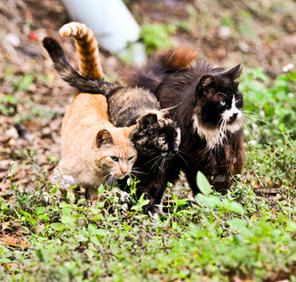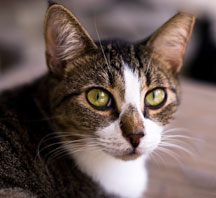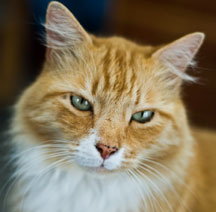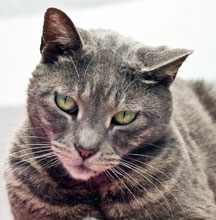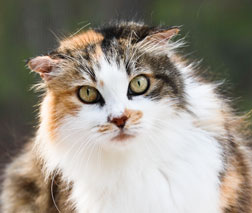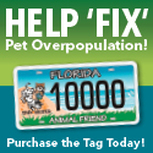These Community Cats are Friends living Happily at their Colony home.
Ferals are often referred to as free-roaming or community cats. They are the descendants of people's pets who were not spayed or neutered. They were either abandoned, lost, or the result of uncontrolled breeding where they were left to fend for themselves. They have had limited contact with people and are therefore fearful of
people. Because of their lack of socialization with people, they are unadoptable and if taken to a shelter face
certain death.
Although these cats will never become cuddly lap cats, they can live harmoniously in our communities in
Charlotte County and live very fulfilling lives outdoors. They can survive and thrive in almost every
landscape. Kindhearted people, usually referred to as caregivers, are stepping up to help these cats.
With daily care and sterilization using Trap-Neuter-Return (TNR), they are breaking the reproductive cycle and
controlling colony numbers.
people. Because of their lack of socialization with people, they are unadoptable and if taken to a shelter face
certain death.
Although these cats will never become cuddly lap cats, they can live harmoniously in our communities in
Charlotte County and live very fulfilling lives outdoors. They can survive and thrive in almost every
landscape. Kindhearted people, usually referred to as caregivers, are stepping up to help these cats.
With daily care and sterilization using Trap-Neuter-Return (TNR), they are breaking the reproductive cycle and
controlling colony numbers.
Trap-Neuter-Return (TNR)
TNR is a comprehensive method for humanely and effectively managing cat colonies and reducing the free-
roaming cat population. The process involves trapping entire colonies. This is important since it is the only
way that the reproductive cycle can be halted. The cats are spayed or neutered and vaccinated against Rabies.
While under anesthesia, the left ear is tipped indicating participation in the program. Once awake,
the cats are returned to the caregiver who monitors recovery and releases them back into their territory
when they are ready. The caregiver is a very important part of the program. Besides providing food, water,and
shelter, he or she monitors the colony for newcomers and mediates any conflict between the cats and the
surrounding community. It is estimated that over 8,500 households in Charlotte County are feeding feral or
free-roaming cats.
TNR WORKS
The Benefits
*No more kittens are born and there is a gradual reduction in colony size.
*Annoying mating behaviors (fighting,spraying,yowling) are eliminated.
This results in fewer calls to Charlotte County Animal Control about
nuisance cats - freeing them for more important duties.
*TNR is more cost effective then repeated attempts at eradication. By
decreasing the number of euthanasias at the contract shelter, there
can be a substantial savings to the taxpayer. It costs an average of
$120 to trap, house, kill, and dispose of an animal compared with
$25 for the sterilization program. TNR also frees-up valuable shelter
space for adoptable animals.
The Benefits
*No more kittens are born and there is a gradual reduction in colony size.
*Annoying mating behaviors (fighting,spraying,yowling) are eliminated.
This results in fewer calls to Charlotte County Animal Control about
nuisance cats - freeing them for more important duties.
*TNR is more cost effective then repeated attempts at eradication. By
decreasing the number of euthanasias at the contract shelter, there
can be a substantial savings to the taxpayer. It costs an average of
$120 to trap, house, kill, and dispose of an animal compared with
$25 for the sterilization program. TNR also frees-up valuable shelter
space for adoptable animals.
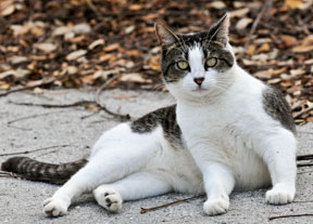
WHY SPAY AND NEUTER THESE
FREE-ROAMING COMMUNITY CATS?
Do it for yourself.
-You will stop feeling upset about the plight of these beautiful creatures.
-You can be a neighborhood hero - set an example and help teach our
children a kinder way to treat animals.
Do it for the cats.
-They will be healthier.
-They will stop fighting, yowling, and spraying.
-They will stop having sickly unwanted kittens.
-Their numbers will decrease.
Do it for your neighbors.
-They will see fewer cats each year.
-They will find less feces and urine odor in their yard.
-The healthy cats who remain will provide a safe free
deterrent to rodents.
-You will stop feeling upset about the plight of these beautiful creatures.
-You can be a neighborhood hero - set an example and help teach our
children a kinder way to treat animals.
Do it for the cats.
-They will be healthier.
-They will stop fighting, yowling, and spraying.
-They will stop having sickly unwanted kittens.
-Their numbers will decrease.
Do it for your neighbors.
-They will see fewer cats each year.
-They will find less feces and urine odor in their yard.
-The healthy cats who remain will provide a safe free
deterrent to rodents.
